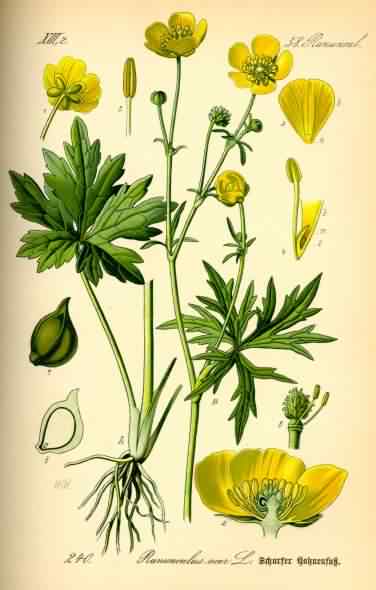
Image 1885 Dr. Otto Wilhelm Thomé
Click for a larger image
More photos
Image 1885 Dr. Otto Wilhelm Thomé
Click for a larger image

Meadow Buttercup - Ranunculus acris
Family - Ranunculaceae
Also known as - Tall Buttercup and Giant Buttercup
This plant is poisonous
Meadow Buttercup is a common perennial buttercup across the UK, Europe through Asia to China and Japan. Usually on marshy or moist loamy soils in damp meadows, pastures, rock ledges, growing to 1m (3ft 3in) tall. Flowering from May to July, the Hermaphroditic glossy yellow flowers about 25mm (1in) across, of five overlapping petals above five green sepals that soon turn yellow as the flower matures. The flowers are pollinated by bees, flies, beetles and Lepidoptera, developing numerous seeds as achenes.
Like other buttercups the Meadow Buttercup contain Ranunculin, which breaks down to a toxin Protoanemonin that can cause dermatitis and vomiting, however the toxins can be destroyed by heat or drying. Protoanemonin is volatile and can be given off when handling the plant leading to eye and nasal irritation so be careful when weeding out this plant. All parts of the plant are poisonous, it has a strongly acrid juice that can cause blistering to the skin.
BCP do not advise or recommend that Meadow Buttercup – Ranunculus acrissu is eaten or used as an herbal remedy. As a herbal remedy the plant was crushed and applied as a poultice to the chest to relieve colds and chest pains. The fresh leaves have been used in the treatment of rheumatism, whilst crushed flowers and the leaves were used as a headaches cure. An infusion of the roots was used for relief of diarrhoea, poulticed root has been used on boils and abscess, and plant sap used to remove warts.
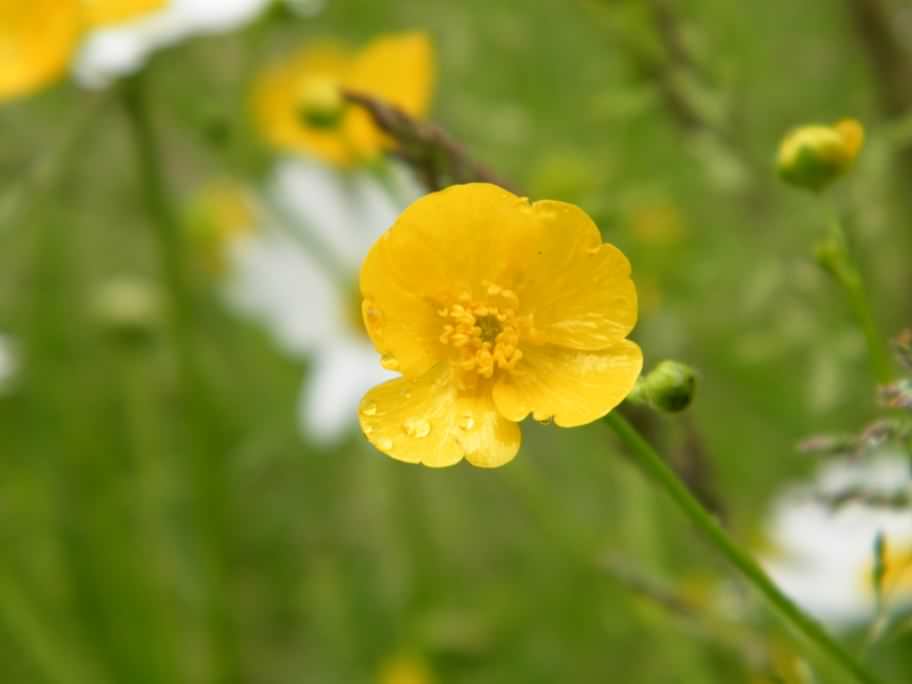 |
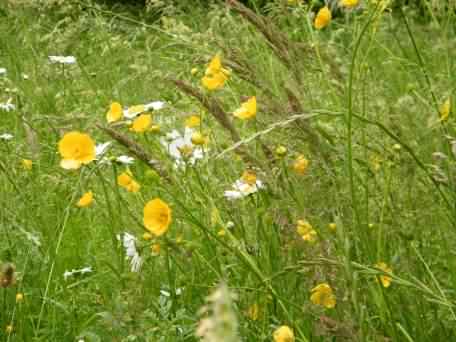 |
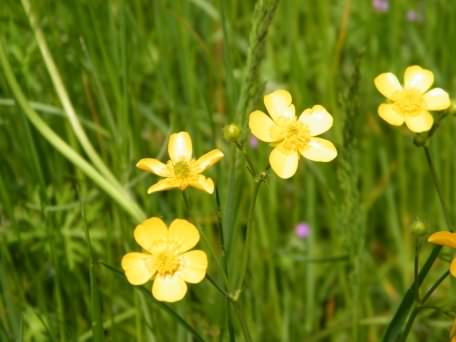 |
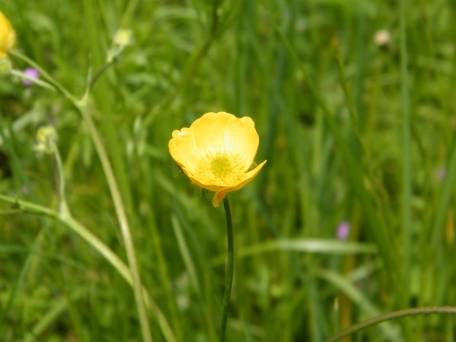 |
| Photos ©2018– | Click any photo for a larger image | ||
Site design ©1999– Brickfields Country Park - Privacy -